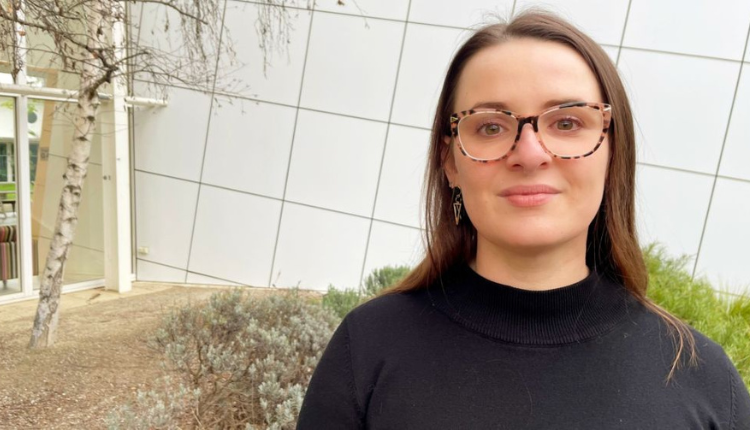The researcher shedding light on the dark side of the internet

Evita March’s (she/her) research isn’t for the faint-hearted. It explores online bullying, violence, and hate – what motivates ‘trolls’, the hurt they cause, and what we can do to prevent it.
An internationally recognised cyber-psychology researcher with Federation University’s Institute of Health and Wellbeing, Associate Professor March focuses on the antisocial online behaviour that affects many, but about which we know little.
It’s a hot button issue, one she says deserves more study. Named as one of Australia’s top five early career science researchers in 2020, Assoc Prof March contributes to media stories and public discussion, and her advice helps frame cyber-safety policy, law, and prevention strategy.
She calls cyber-psychology “the exploration of the interaction between humans and technology”, and while social media abuse has been her predominant focus, she’s emphatic that the internet is a potent force for good.
“Many see the online space and its anonymity as a positive and supportive space,” Assoc Prof March says.
“It can be very powerful in helping people be more authentic, and to drop their armour to connect in a way that might not be possible face-to-face.”
While ‘trolling’ is the popular catch-all, she says the word lacks the nuance to reflect the myriad of motives and behaviours – from catfishing to bullying and threats of violence – in the online world, where people can ruthlessly inflict psychological pain on another, intentionally or otherwise.
A decade’s pioneering research has shown her that, in a complex and stressful world, almost anyone could be capable of cyber abuse. She’s identified some of the personal characteristics more common in trolls, enabling her to profile likely offenders.
“The more callous you are, the less empathy you have, the lack of personal responsibility and guilt you have for your behaviour … the more likely you are to cyber abuse,” she says.
Assoc Prof March attracts her own cyber abusers, and while that makes her mindful of her wellbeing and that of her research team, it also fuels her efforts to advocate for those whose lives and health are affected by abuse.
She says that cyber-psychology is a growing research area with real impact, and she is keen to connect with researchers and supervise students interested in this issue.
“Collaboration is the spice of life,” she says. “I love insight experience that people bring to a project, whether they are established researchers, early career researchers, or even students. Honestly, some of the greatest research ideas have come from research students.
“This is a topic that can have positive impact on the lives, and wellbeing, of everyone.”
Interested in learning more about cyberpsychology or undertaking a Masters by Research or PhD? Contact Evita at e.march@federation.edu.au